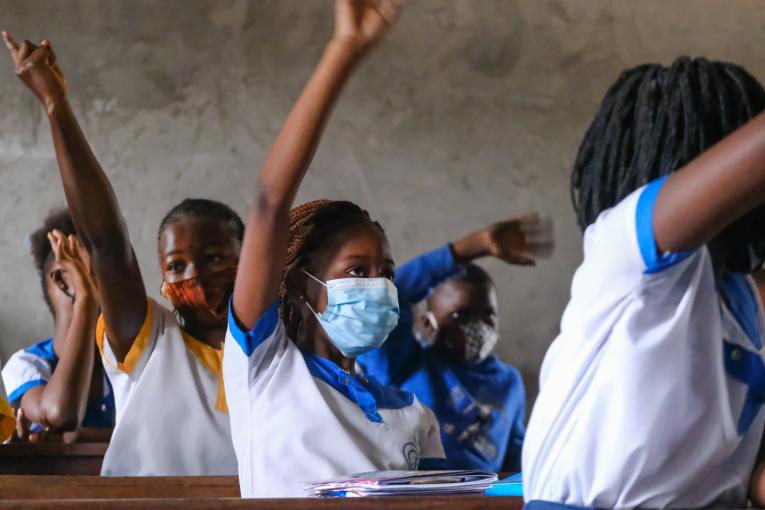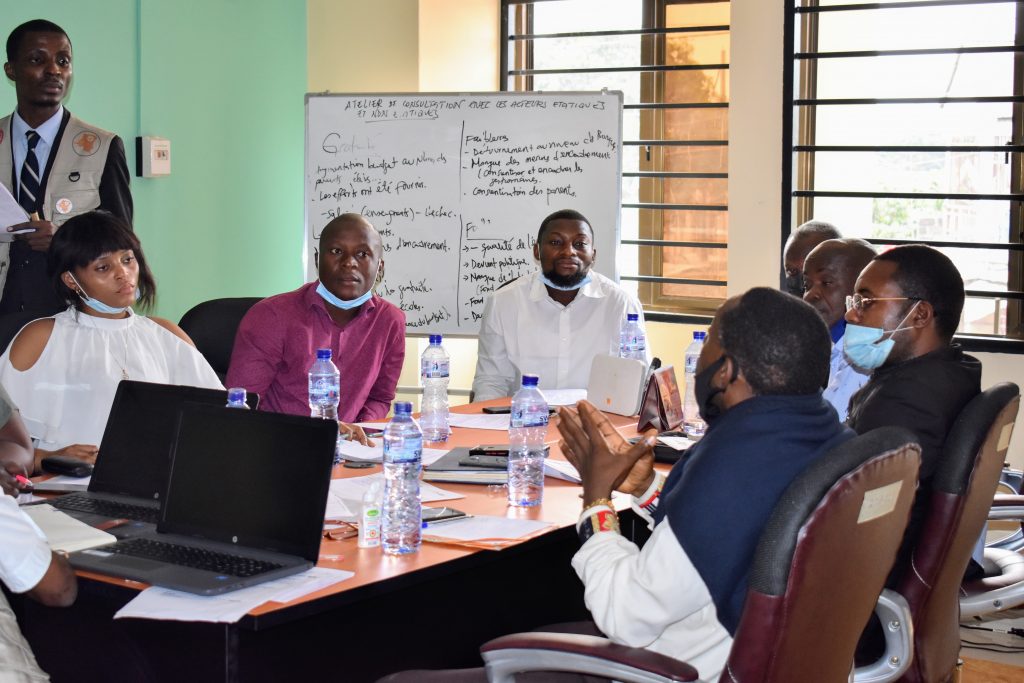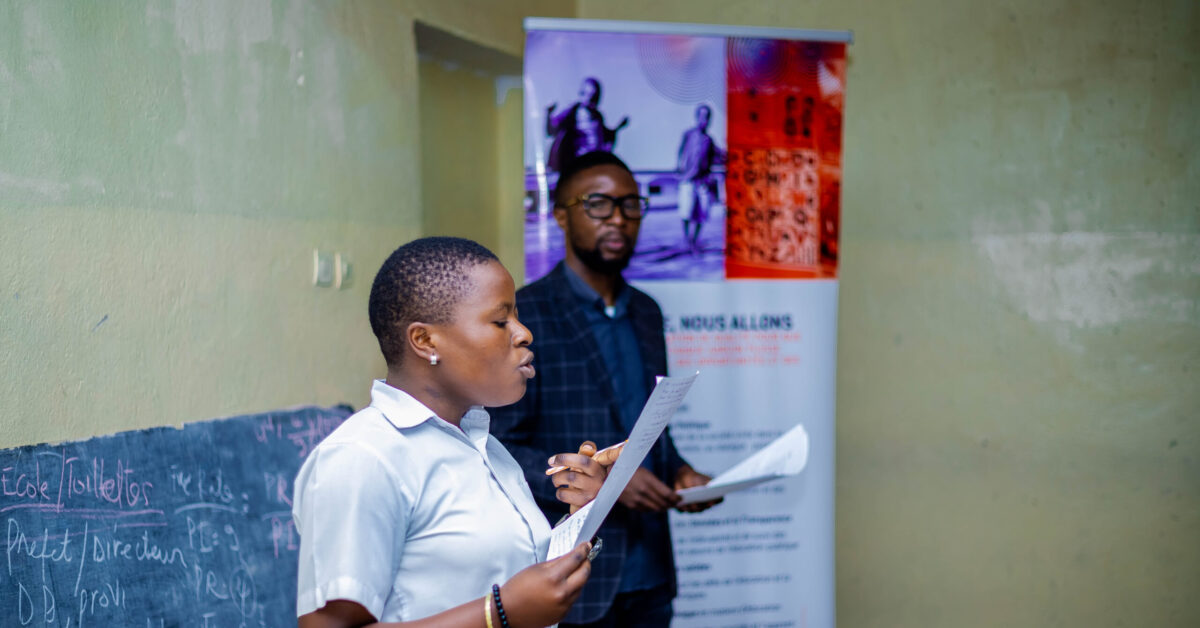Impact
We believe in the power and potential of young people to create solutions to some of the most pressing challenges of our time. Driven by this belief, we empower young people with the skills and tools to create positive change towards more accountable, open, inclusive institutions and public services.
CERC’s model of impact is not a traditional charity model.
- We forge powerful partnerships with young people, communities, civil society organizations, and donors.
- We advocate unlocking financing and political will at the highest level while simultaneously innovating to deliver and scale up inclusive solutions focused on the most marginalized.
Combined, this model has led to a strong track record of delivering impact.
Impact: Results Delivered on the Ground
In Kinshasa and South Kivu, we deliver pioneering solutions and scale the most effective initiatives to promote accountability in providing public services. Some examples include:
- We established 204 Integrity Clubs in South Kivu and Kinshasa and directly trained 3060 school children (ages 14-19), providing them with skills and resources to monitor education services in their schools and advocating with those in power to improve deficient services and infrastructure.
- 396 schoolgirls and 44 students at risk of exclusion empowered to be monitors and confidently voice their schools’ concerns and needs, and influence decisions.
- We trained 278 teachers and 138 principals from 150 secondary schools in South Kivu and Kinshasa, providing them with resources and skills to combat inefficiency and corruption in education services.
- Student-led advocacy helped fix 33% of the problems identified (including inadequate classrooms and toilets, lack of water at school, and poor condition of school infrastructure,).
- In recognition of the project’s impact, Education officials have accepted that Integrity Clubs are rolled out across the region in South Kivu.
Impact: Making Large Scale Change
■ Scaling up the “Integrity Clubs” in an additional province.

Plan for 2023:
- Working closely with 10 parliamentarians, 50 senior education officials, and 6 NGOs to embed anti-corruption sector and transparency protocols in the education sector.
■ Consultation with senior education officials in South Kivu and Kinshasa

In June and July 2021, CERC conducted specific and in-depth assessments, research, and studies on corruption and lack of accountability in the education sector in the DRC with 54 senior Ministry of Education officials and 19 anti-corruption practitioners and experts, leaders of civil society organizations, teachers’ unions, and faith-based associations. The assessments and research conducted in Kinshasa and South Kivu included four consultative workshops, a series of baseline surveys in 41 secondary schools in South Kivu and Kinshasa, and a compilation of existing studies on corruption and accountability, and youth participation. The findings and recommendations from the studies were evaluated and used to produce a baseline strategy to shape policy change and stimulate debate on issues of corruption and accountability in the education sector.
■ CERC participated in the Anti-Corruption States General
In October 2021, CERC participated in the Anti-Corruption States-General, held by the Ministry of Justice. These meetings were organized as part of the “Projet d’Appui à la lutte contre la corruption en République démocratique du Congo” and aimed to make a complete diagnosis of the state of corruption and anti-corruption initiatives, to create a consensus on the priority actions to be taken and the reforms to be undertaken to achieve a significant and sustainable reduction of corruption in the DRC and to define the modalities of implementation as well as the follow-up mechanisms of recommendations from the States-General. Invited as an expert, CERC addressed corruption prevention, integrity education, and the use of technology to promote transparency and accountability in public service delivery.
